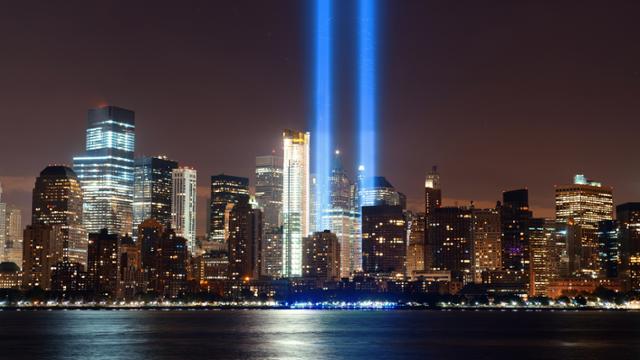Two decades later, UR faculty weigh in on lasting effects of 9/11
9/11: 20 Years After
Twenty years after Sept. 11, 2001, Americans still feel the effects of the attacks even if they’re not always clearly seen or understood, say UR faculty who have researched and written about the changes brought about by 9/11.
Jeff Legro, Richmond’s provost and a political science professor, co-edited Uncertain Times: American Foreign Policy after the Berlin Wall and 9/11, which examined how policymakers reacted to those surprising world events.
“One of the main reactions to 9/11 was the notion that the U.S. had to operate aggressively in foreign areas such as Afghanistan and Iraq, including ‘nation building,’ to prevent terrorism in the United States,” Legro said. “That has been a dominant theme, and now we are seeing — most painfully in Afghanistan — from both Democrats and Republicans a reaction and retreat due to the costs and shortcomings of that idea.”
The United States won’t simply give up on fighting terrorism abroad, Legro said, but policymakers will look for ways to balance effective deterrence without becoming overextended or mired down.
Physics professor Jerry Gilfoyle is active in science policy and has worked on identifying new technologies for homeland security. Gilfoyle said thousands of public and private organizations — “an entire ecosystem” — have focused on countering terrorism threats since 9/11.
“Many threats have been reduced,” he said, for example, by screening container ships that are a potential way to deliver a large explosive. “About 80% of all maritime, containerized cargo imported into the U.S. is now prescreened with large-scale X-ray, gamma-ray, and radiation detection devices. Application of new and existing technologies was an essential tool in blocking these pathways of terror.”
Yet significant threats remain. The internet allows terrorists to recruit fighters to execute low-tech, small-scale attacks, he said. And secure forms of messaging using encryption make it more difficult to track the actions of terrorist networks.
Like any trauma, it changed the way we think about ourselves, others, and the world.

“The use of technology continues to evolve as the threats evolve,” Gilfoyle said. “The U.S. and our allies have the best scientific establishments in the world, but countering the terrorist threat remains a challenge to balance the need for security and our long-standing freedoms.”
In the wake of the Sept. 11 attacks, the U.S sent 2.8 million troops to Iraq and Afghanistan, and more than 300,000 were women. American Studies professor Laura Browder’s book When Janey Comes Marching Home: Portraits of Women Combat Veterans examines the lives of women who served in those two wars despite technically being banned from ground combat until 2015.
“In reality women served in combat positions, including the Marines’ female engagement teams, throughout the wars,” Browder said. “These were wars that had few clear distinctions between front lines and rear support, as forward operating bases were frequently subject to mortar attacks. And the signature weapon of both wars — the improvised explosive device, or I.E.D. — could and did explode along the side of any road, maiming or killing those who were on the road to deliver supplies.”
Partly due to the wars that came in the aftermath of 9/11, women now make up 15% of the military and serve in all five branches, Browder said.
“Women are eligible not only to serve in combat, but to serve in elite combat groups like the Green Berets and Navy SEALs,” she said. “None of this would have happened nearly so quickly if our all-volunteer military had not been overstretched as the result of two seemingly endless wars.”
According to Janelle Peifer, assistant professor of psychology, the terrorist attacks on New York and Washington were such an unexpected shock that the impacts are noticeable across various levels of American society.
“We know that trauma tends to heighten memories — most can remember with rare accuracy where they were when 9/11 occurred. This terrorist attack fundamentally altered Americans’ sense of safety. Like any trauma, it changed the way we think about ourselves, others, and the world. Post-9/11, we noticed upticks in mental health concerns, particularly anxiety.”
And while a new generation may not remember those events — many current UR students were born after Sept. 11, 2001 — they too are affected by it in surprising ways.
“9/11 heightened conversations associated with mental health, trauma, and coping,” Peifer said. “We see a generation willing to engage with and discuss mental health with less stigma than ever before.”

